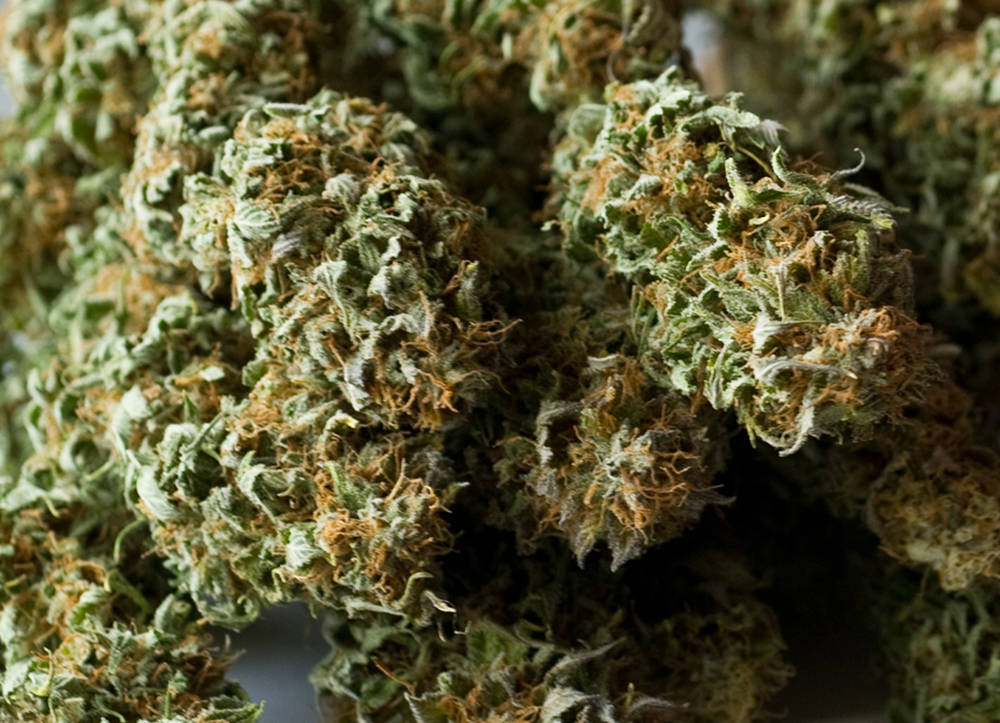Correction: Wells Fargo spokesman David Kennedy was misidentified in an earlier version of this article. He is David Kennedy, not Brian Kennedy. This article has been updated to reflect the change.
One of Alaska’s three marijuana testing labs has been shut down by Wells Fargo bank, leaving the state’s growers with only two options for state-mandated testing.
In a social media post Thursday morning, testing lab Steep Hill of Anchorage declared, “We are sorry to announce that Steep Hill Alaska will be suspending cannabis testing operations on March 31, 2018. We have to relocate because Wells Fargo called in the loan on our building. They will foreclose if we do not move out — just because we are a cannabis business!”
David Kennedy, a spokesman for Wells Fargo in Alaska, said by email, “It is currently Wells Fargo’s policy not to knowingly bank marijuana businesses, based on federal laws under which the sale and use of marijuana is still illegal.”
Alaska regulations require marijuana sold in the state to be tested for potency and contaminants. With Steep Hill’s closure, Anchorage-based CannTest and Wasilla-based New Frontier Research remain available for that required testing.
Brandon Emmett is a member of Alaska’s Marijuana Control Board from Fairbanks and chairs the subcommittee devoted to testing issues. By phone, he said the wider effects of Steep Hill’s closure will be limited because CannTest alone has the capacity to handle both business’ work.
“The businesses that use Steep Hill are going to be inconvenienced … obviously Steep Hill is going to be extremely inconvenienced, but as far as the industry as a whole is concerned, I don’t think it will be a major issue,” Emmett said.
A CannTest representative confirmed that its lab has enough capacity to handle state demand. New Frontier Research said by email that it has not held its grand opening — its license was finalized March 14 — but it has received numerous calls this week and is accepting samples for testing.
Steep Hill CEO Brian Coyle said his lab’s closure is the end result of months of conflict. That conflict was caused by federal banking regulations that prevent banks from dealing with marijuana businesses.
“To me, Wells Fargo is the real bad guy here. They could give a s—- about Alaska. Only 700,000 people in Alaska; that’s less than the city of San Francisco,” he said by phone on Friday morning.
“We need to hold their feet to the fire. If they’re going to be doing business in Alaska, they should be following Alaska’s state laws.”
Steep Hill rents office space in Anchorage and was informed by its landlord late last year that Wells Fargo — which holds a loan on the building — was preparing to call the loan because it had learned that Steep Hill was a marijuana business.
The landlord, rescue and survival trainer Brian Horner, attempted to find a different bank or credit union to assume the loan, but he could not. Horner did not return phone calls from the Empire on Friday; this account of events was provided by Coyle.
He turned to third parties and reached an agreement with a non-bank investor, but the title company refused to switch the title to the building, again because it housed a marijuana business.
That left Horner with no choice but to evict Steep Hill.
On the same day Steep Hill shared news of its impending eviction, Sen. Lisa Murkowski, R-Alaska, joined other U.S. Senators in urging U.S. Sen. Mike Crapo, R-Idaho and chairman of the Senate banking committee, to hold a hearing on a bill that would allow banks to handle marijuana business.
For states like Alaska that have legalized marijuana, it’s important for law-abiding businesses to have access to safe financial services instead of forcing them to operate in all-cash, increasing a risk of crime and threatening public safety.
— Sen. Lisa Murkowski (@lisamurkowski) March 30, 2018
U.S. Sen. Dan Sullivan, R-Alaska, is a cosponsor of that bill, and in the U.S. House, Rep. Don Young, R-Alaska, is a member of the “cannabis caucus” that has encouraged banking reforms.
The issues involving Steep Hill are the latest to afflict marijuana testing in Alaska. Late last year, the Alaska Marijuana Control Board warned consumers that existing testing procedures were delivering wildly different results. In the wake of that revelation, the board created the testing subcommittee, which was charged with reducing the testing variations. That work is ongoing.
• Contact reporter James Brooks at jbrooks@juneauempire.com or 523-2258.

